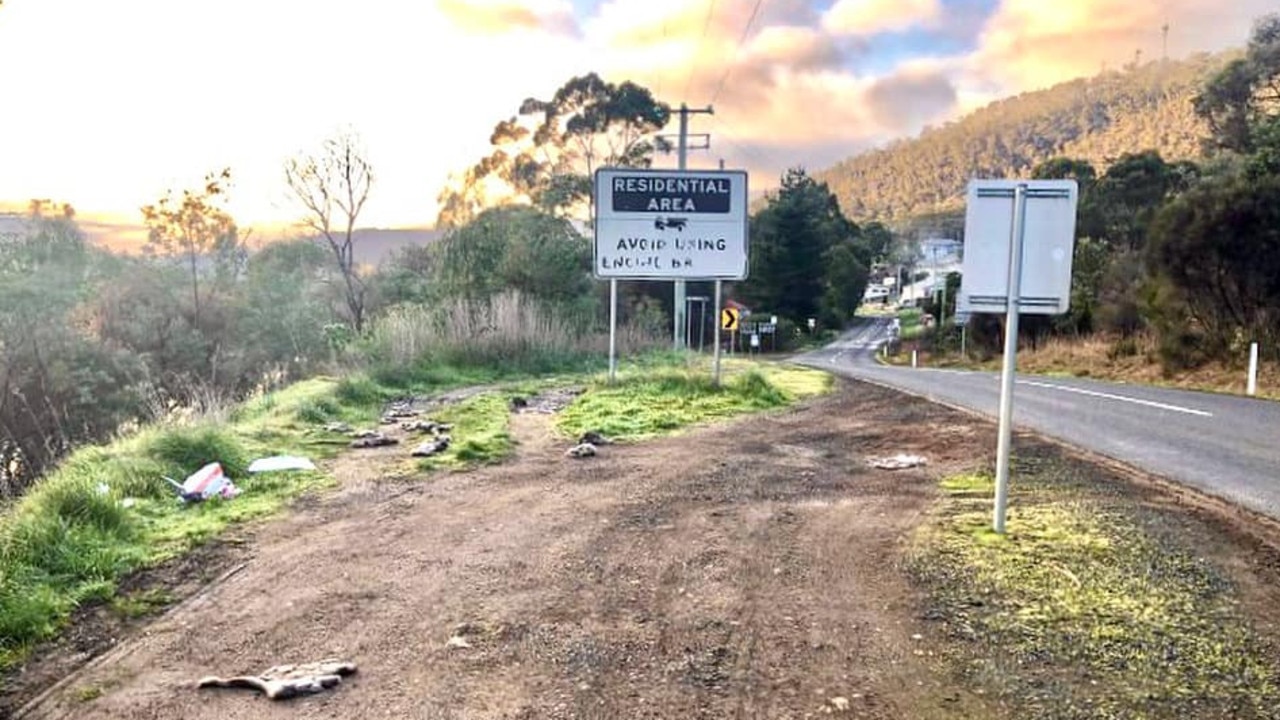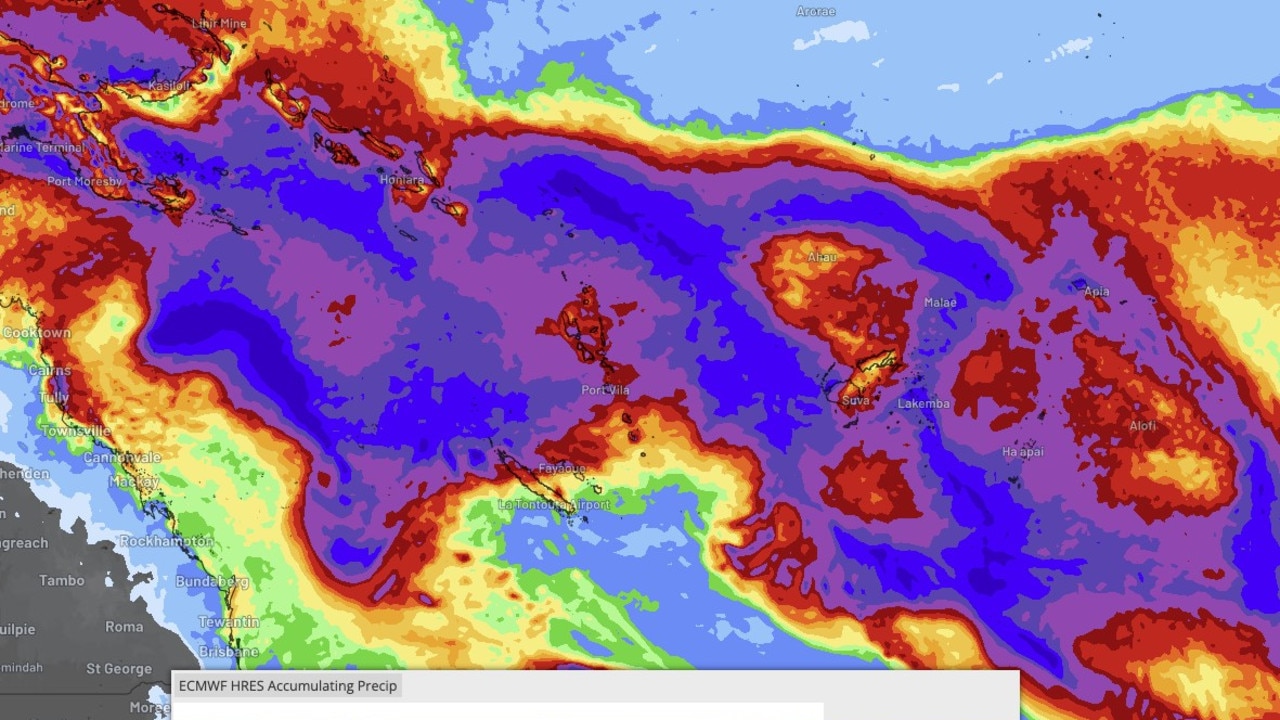‘Disgusted’: Images of gruesome killings ruin picturesque town
Locals in a remote Australian town woke to the remains of a gruesome slaughter which raises questions over the minds of the perpetrators. Warning: Disturbing images

Warning: This story contains disturbing images.
Tasmania’s Derwent Valley is best known for its stunning natural beauty but on Wednesday locals woke to a far more gruesome sight.
The remains of slaughtered wallabies littered a roadside area just outside the town of New Norfolk in the state’s southeast.
Mayor of Derwent Valley Council Michelle Dracoulis said the tails and skins of the creatures had been dumped by hunters who considered them scrap.
“People go hunting, which they’re allowed to do; it’s a hobby for some people here. But in this instance, they’ve taken what they consider waste and just thrown them on the side of the road on the entrance into town,” Ms Dracoulis said.
“People walk there, they walk their dogs and children there.
“Can you imagine? ‘Happy school holidays – check this out.’”

The disrespect on display to the animals and the town worked against the interests of hunters as a group, according to Ms Dracoulis, who added she had also done some hunting as a teenager.
“This can’t be doing anything good for people who hunt for sport or meat or whatever else. It would be the very few doing this, but it tarnishes everyone’s reputation,” she said.
The area where the carcasses were dumped is under an hour’s drive from Hobart and is a popular wildlife spotting area for visitors.
“You can see wallabies and pademelons in the wild – so seeing them on the side of the road like that would be fairly gruesome,” Ms Dracoulis said.
She added many people who hunted wallabies wouldn’t consider the tails to be scrap, as they can also be eaten.

The proximity to the busy road also posed a risk to other wildlife which would be attracted to the carcasses.
“We’ve got Tassie devils down here on the road, we’ve got crows and eagles. All sorts of things that come down and eat meat if it’s left near the roadside,” Ms Dracoulis said.
According to Tasmania’s Department of Natural Resources and Environment, land settlement by Europeans has favoured wallabies, leading to the potential for an expansion of numbers beyond what the environment can support.
Hunting them has become a recognised means of population control and is a widespread practice.
“I understand that people hunt – I don’t have an opinion on that. But same as any other activity you do – clean up after yourself, don’t leave it in a public space,” Ms Dracoulis said.
“The people that have done this don’t respect our town, the animals they hunt or themselves.”



